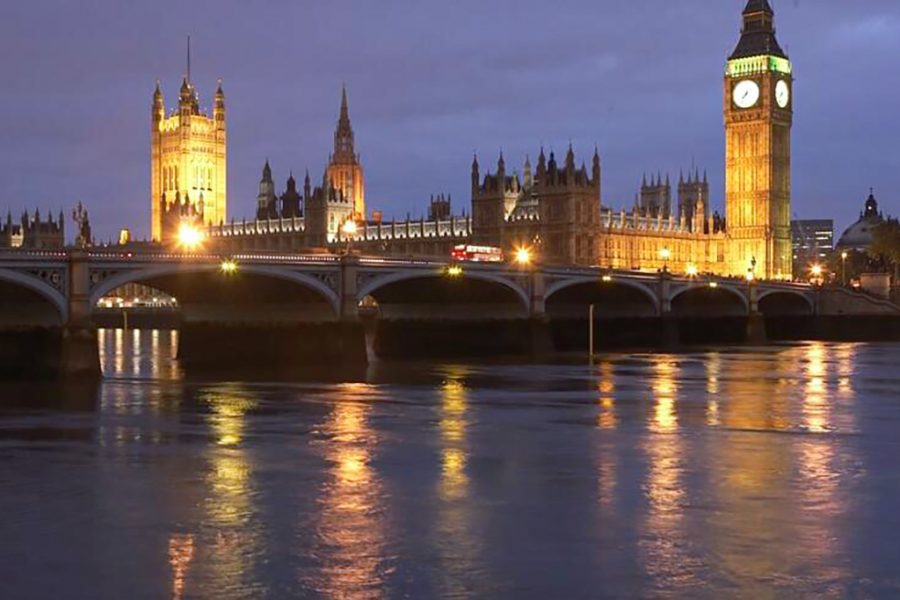As the U.K. government extends its Brexit deadline from Oct. 31 to Jan. 31 of next year, many potential ramifications of the U.K.’s separation from the European Union remain unknown. The ambiguity of the situation has made it hard to plan for the future, a dilemma which extends to the administrative staff at NYU London.
In an interview with WSN, NYUL Assistant Director for Student Life Nigel Freeman said that planning for Brexit has been a moment-to-moment process.
“Literally some days we’re like ‘okay, so what’s happened now?’” he said. “I’m coming out of a meeting, what’s this new scenario? How’s this going to affect us? How’s this going to affect students?”
Dr. Marie Milofsky, a lecturer at NYUL who hails from France, has lived in the U.K. for 27 years. In that time Milofsky never became a naturalized citizen. Aside from voting in British elections, she didn’t see a reason to apply for citizenship.
“I could vote at the local elections which, to me, is the most important,” she said. “It’s also some financial reason because it costs, I think, 1,800 pounds [$2,300] to have the honor of becoming a subject of Her Majesty. So I found that, given my family size, it would just not be workable.”
Milofsky also works at the London School of Economics, which hired solicitors to provide advice to the staff.
“The problem we have at NYU is the same in most of the English universities or at least the London ones,” she said. “They have to secure their facility and they organized for some solicitors to advise us. So the thing that I did was become a U.K. permanent resident, which is an intermediate status.”
In addition to permanent residence, Milofsky also holds a settled status in the U.K., which allows her to stay in the country. Though she doesn’t think her status will be subject to much change, she isn’t entirely sure.
“There’s so much uncertainty around this Brexit. We still don’t know when it’s going to happen, we still don’t know what the conditions are going to be,” she said.
Depending on the conditions of the Brexit deal, European students studying in the U.K. could see tuition fees rise if the U.K. leaves the European single market. Similarly, U.K. students would also have a harder time studying in the EU. That being said, NYUL isn’t expecting Brexit to significantly impact its students.
“Unless they’re an EU citizen and they want to end up living here, it isn’t definitely going to affect the students that are here at the moment,” said Assistant Director of Finance and Operations Ruth Tucker.
“I wouldn’t say we’re worried, but we’re monitoring it closely and we’re talking to colleagues in key departments like Public Safety and risk management and global programs about how things might change,” Tucker said. “It’s very hard to plan very cohesively in the moment because it’s so uncertain.”
This uncertainty seems to extend to incoming students studying abroad during the spring 2020 semester. SPS sophomore Isabelle Ross wrote in an email to WSN that when she was applying to study abroad in London for the spring semester, Brexit played a minimal role in her decision.
“I knew it would be going on and would probably have an effect on me while I was there but other than that, I didn’t think much about it,” she said.
Freeman said that Brexit hasn’t affected the volume of applicants to NYUL.
Tucker agrees that, from an academic point of view, Brexit might even be a reason to study in London. “If I were as a politics or journalism major then this is an interesting time to be here studying, right? I mean certainly it is for me as a kind of politics enthusiast in my spare time. It’s an interesting time to be here,” she said.
Though staff at NYUL don’t think Brexit will have a significant effect on its students, they are less confident about staff. According to Tucker, approximately 10% of the lecturers and full-time staff are EU citizens.
Dr. Eiko Thielemann, another lecturer at NYUL, has a different problem. Thielemann came to the U.K. from Germany in the ‘90s to study and decided to stay under the free movement rules of the EU, spending the next 20 years here without the need to apply for British citizenship. It wasn’t until he learned the outcome of the Brexit vote that Thielemann decided to naturalize, getting his dual citizenship in December 2017.
However, in the wake of Brexit, Thielemann’s citizenship status is in question. Germany only allows dual citizenship within the EU, which the U.K. will no longer be a part of in January.
“What I’m uncertain about, and nobody can give me a legally clear-cut answer, is to the question of what happens if and when the U.K. leaves,” Thielemann said. “So the concern is that I might be asked to choose then, after Brexit, which nationality I want to continue to hold.”
If faced with that decision, Thielemann already has his mind made up.
“It’s not going to be a very difficult decision for me because in the end, I value my EU citizenship higher than the British one under those circumstances.” he said. “What that would mean then for my resident status here in the U.K. is obviously not completely clear yet.”
However, with a permanent residence in the U.K. or proof of long-term residency, Thielemann isn’t really concerned for himself. “I think my main concern, in this context, it’s not for someone like myself, but it’s for the other 3.8 million EU nationals,” he said.
While employees from the EU like Thielemann and Milofsky are relatively secure in their residency, there are others whose residency statuses are still unclear.
Thielemann says that many EU nationals have not gone through the processes that would allow them to stay in the U.K. after Brexit largely because they feel that the decision was not of their own making. They do not have the ability or paperwork to prove they have lived in the U.K. long enough to qualify for settlement.
“I hear it quite often,” he said. “They say, ‘Well, I’ve been living here for 20 years legally and now because of the situation that is completely beyond my control, beyond my choosing, I’m now basically being asked to do things that I should have as an intrinsic right because I came here under a particular legal context that the U.K. government signed up to at the time.’”
Undergoing these changes and uncertainties without a vote in the matter, it seems hard for an EU national to not feel helpless. Thielemann thinks that, given all the new information that has surfaced since the initial Brexit vote, the U.K. needs a second referendum. He took part in a march in October calling for exactly that — a second chance.
“I think it’s only right to ask people to confirm that that’s what they want,” he said. “And ultimately, I think it’s also an opportunity, a second referendum, to try to heal some of the wounds that the Brexit process has created.”
A version of this article appears in the Monday, Nov. 25, 2019, print edition. Email Paul Kim at [email protected].
























































































































































